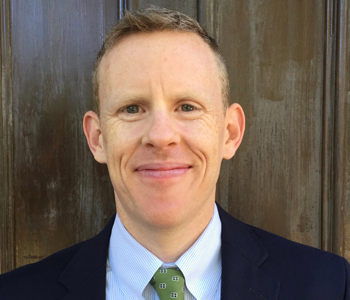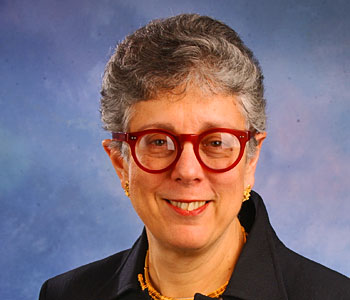Melinda Blau and Karen L. Fingerman, PhD
Consequential Strangers: Turning Everyday Connections Into Life-Changing Moments
W. W. Norton
304 pages, 8 1/4 x 5 1/2 inches
ISBN 978 0393338454
We are living at a time when digital technologies allow us to more easily extend the boundaries of our social circles than we could in the past. This book recognizes that reality—and the fact that life is too complex to depend solely on the people closest to us.
Consequential Strangers examines the vast, unsung array of everyday people, on and off the Internet, who skirt the edges of our social circles and who have a surprisingly profound impact on our success, happiness, and health.
In collaboration with psychologist Karen L. Fingerman, who coined the term “consequential strangers,” I drew from a wealth of social science research and more than two hundred interviews to underscore the importance of this wider social terrain.
Unlike people closest to us, who know what we know, consequential strangers expand our horizons. They can lead us to new ideas and allow us to stretch ourselves. They offer information and resources we simply can’t get from loved ones. While not all of these lesser relations are good to us or for us, the vast majority are–among other reasons because we can usually walk away when they’re not.

While not all of these lesser relations are good to us or for us, the vast majority are–among other reasons because we can usually walk away when they’re not.
Throughout my career, I wrote books and articles about intimate relationships. When I made a move from New York City to Northampton, Massachusetts in 1990, I left all my everyday acquaintances behind—the butcher, the dry cleaner, the people I’d have a five-minute conversation with on the street. It was then that I first realized what an important role those casual relationships played in my life. One needed acquaintances for a new place to feel like home. In 2006, when I read a chapter by psychologist Karen Fingerman, “Consequential Strangers: Peripheral Relationships Across the Life Span,” I knew it was an idea whose time had come:
In the 21st century, our social lives are such that most of us spend more time with consequential strangers than with loved ones. In a review of 1000 articles in family science journals, Fingerman found in 2002 that only 5% of studies focused on non-intimate relationships. And yet, because we live “niched” lives, hopscotching from one responsibility or interest to another, the majority of our daily interactions are not with loved ones. Rather, we connect with people we know on a casual basis: work colleagues, service providers, merchants, doctors, gym buddies, neighbors, and other acquaintances. Our intimates provide comfort at home, but consequential strangers anchor us in the world.
The Internet accelerated the ascendance of consequential strangers. Community studies since the late sixties have shown that we turn to many sources for support, not just our loved ones or people nearby. Communication technologies of the past, such as the telephone, allowed us to “reach out and touch” and thereby changed the way we manage our relationships. However, the Internet and mobile phones upped the ante. Today’s communication means are cheap, quick, and graphic, making us more aware of the members our personal networks. And just as consequential strangers dominate our face-to-face encounters, most of our online conversations are with former school chums, long-distance collaborators, and random people with whom we share a particular interest.
We cannot thrive without consequential strangers. Close ties are important for our survival, but they are not the whole story. The fact is, our loved ones–our strong ties—know what we know, think the way we think. Information and opportunity more likely come from people who are different from us, loosely connected, and who, therefore, act as “bridges” to new ideas and different kinds of social groups. Looking at real-life circumstances, it becomes clear that consequential strangers are vital in handling everyday needs and unexpected crises. Through weak ties, a woman carves out an untraditional career, a quadruple amputee survives the trauma, a widow makes a new life for herself. The concept is equally relevant to collectives, exemplified in the book through anecdotes about Penn State College, innovations at Proctor & Gamble, and water management in Ghana.
A diverse network is a valuable network. Size doesn’t matter as much as the social mix. Health research suggests that being connected to different types of people benefits the immune system, hastens recovery, and is even associated with longevity. Knowing a variety of people, up and down socio-economic ladder, also puts more information at our fingertips, makes us better communicators, and bodes well for success. Granted, dealing with people who are different can also sap our attention and trigger our own unconscious prejudice. But diversity research also suggests that by opening ourselves to consequential strangers, we can begin to discover the commonalities that bind us as humans.
In chapter 2, “The View From Above,” I write that social networks are like traffic jams.
You can easily see the cars that surround you—your intimates. However, it takes a helicopter to view your entire entourage—your “social convoy.” So take a moment and mentally position yourself above the road. You can see yourself motoring along the highway of life, accompanied by your loved ones, your closest friends, and the various acquaintances you pick up along the way. A handful of people travel alongside you for miles and miles, perhaps for the whole journey. The peripheral people, neither family nor close friends—your consequential strangers—are often there for a particular segment of the trip and tend to serve specific needs. They might help you through rough passages, lead you to important resources such as information or others who can help, or provide comic relief when it’s most needed. Because your convoy changes as you change, some travelers drop back for a while or fall so far behind that you barely see them in your rearview mirror. Some members of your convoy, such as coworkers or fellow volunteers, also know each other. They form a distinct “cluster”—a group within your convoy. Imagine them riding together in a minivan.
Bringing people into your convoy when you need them is a key coping mechanism in a complex world. Chapter 7, “The Future of Consequential Strangers,” highlights a story of how communities are created in response to challenge.
When his son Billy was born, Jim Hourihan remembers the nurse whisking the baby out of the delivery room. “He was gray and not breathing right. Christine knew something was wrong, but no one said anything. By accident, I saw ‘Down Syndrome’ on a paper I had to sign, and I ran out after the doctor.” Although in the years to come, the family would come to view Billy as a gift, a child who would inspire an unexpected sense of grace and acceptance of others, Hourihan admits, “It was like a funeral for the first few days.” The “turning point,” he recalls, occurred a few months later when he, Christine, and several members of their extended clan attended a “buddy walk” in Plainfield, New Jersey. They had learned about the event through the National Down Syndrome Society, which cosponsors hundreds of annual buddy walks to raise money and awareness. “It was a comfort for us to talk to parents who’ve been there, and to see older kids having fun, playing baseball,” Hourihan recalls. “But there was no group in Bergen County, where we live. So my mother said, ‘Let’s start one.’”

Health research suggests that being connected to different types of people benefits the immune system, hastens recovery, and is even associated with longevity. Knowing a variety of people, up and down socio-economic ladder, also puts more information at our fingertips, makes us better communicators, and bodes well for success.
The societal drift today favors interdependence. We are able to connect in forms—and at speeds—that our forebears could never have imagined. Researchers in many scientific disciplines affirm that we are “social animals,” not merely directed by our individual minds, but also by our relationships.
What I hope readers will gain from reading Consequential Strangers is summed up in the book’s final pages:
Each of the people you connect with gives you something different. When we view our lives through this wider lens, we see how far our connections extend. We watch the cast of players who walk on and off our center stage, which gives us both a sense of belonging and a sense of promise. We can get things done because we’re not alone. We can help and heal others and be taken care of as well. We can discover ideas and experiences that are “beyond our familiar.”




We don't put paywalls. We don't distract you with ads. We don't sell your data.
Please help to keep this running!